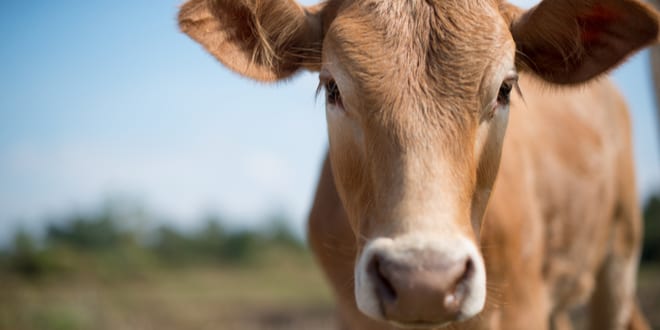Cows grazing in a pasture look innocent enough, giving milk or “selflessly” preparing themselves for slaughter to provide man with meat. But they also endanger the environment by emitting methane (“greenhouse”) gasses that promote dangerous global warming.
We approach a point of no return in terms of climate change caused by mankind and Europeans catch their collective breath following the highest temperatures ever recorded across the continent. Greenland’s ice is melting at a fast pace, and communities in the US Plains states continue to assess the damage from unprecedented flooding and tornadoes.
But Prof. Itzhak Mizrahi of the department of life Sciences at Ben-Gurion University of the Negev (BGU) in Beersheba and the National Institute for Biotechnology in the Negev (NIBN) offers some relief that will play a critical role in ensuring food security and fighting global warming.
An international research team that Mizrahi heads that Prof. Emeritus R.J. Wallace of Scotland’s University of Aberdeen has found that cow genes can be used to control rumen microbiomes (a complex, dynamic ecosystem composed of mainly anaerobic bacteria, protozoa, anaerobic fungi, microorganisms that produce methane and phage viruses that replicate within viruses. These genes can control the amount of greenhouse gasses that animals emit.
In addition to the discovery’s addition to scientific knowledge, their findings have profound implications for dairy and beef farmers trying to reduce their industry’s contribution to climate change as well as bolster dairy farmers’ attempts to maintain or improve milk production efficiency while maintaining product safety.
The study, which covered 1,016 cows (816 Holstein dairy cows, 200 Nordic Red dairy cows) in Italy, Finland, Sweden, and the United Kingdom, found that that a small number of host-determined, heritable microbes make significant contributions to explaining experimental variables and host phenotypes. This, they predict, will lead to microbiome-led breeding/genetic programs to provide a sustainable solution to increase efficiency and reduce emissions from livestock that chew grass and hay.
“Our findings are both a major breakthrough for basic science and will have a positive impact on two major challenges facing the international community for the foreseeable future – climate change and food security,” stated Mizrahi. “Even now, the planet is operating at maximum output for meat and dairy products, and that problem is only going to get worse in the coming decades: By 2050, the world will have about nine billion people. That’s going to mean a serious crisis in protein nutrition.
The team expects to increase production efficiency while at the same time reducing methane emissions. “It would be hard to think of a more important ‘win-win’ for the planet than that,” Mizrahi added.
The study offers such as inoculating key core species associated with feed efficiency or methane emissions as a precision probiotics approach could be considered as likely to complement the heritable microbiome towards optimized rumen function, they said.
Significantly, the researchers believe that although the current focused on two bovine dairy breeds, the results are likely to be applicable to beef animals and other ruminant species. “Given the high importance of diet in performance and the composition of the rumen microbiome, such programs should take special cognizance of likely feeding regimes. Within that context, following the overall predictive impact of identified trait-associated heritable microbes on production indices should result in a more efficient and more environmentally friendly ruminant livestock industry,” the study said.
The decade-old NIBN is a unique, independent research institute located at BGU whose mission is to conduct multidisciplinary, applied and innovative and innovative research in and to lead the commercialization of novel technologies developed by its researchers. Its scientists focus their research on a variety of biotechnology disciplines cancer, infectious diseases, autoimmune and metabolic diseases, human genetic disorders, neurodegenerative diseases, and applied biotechnology.



